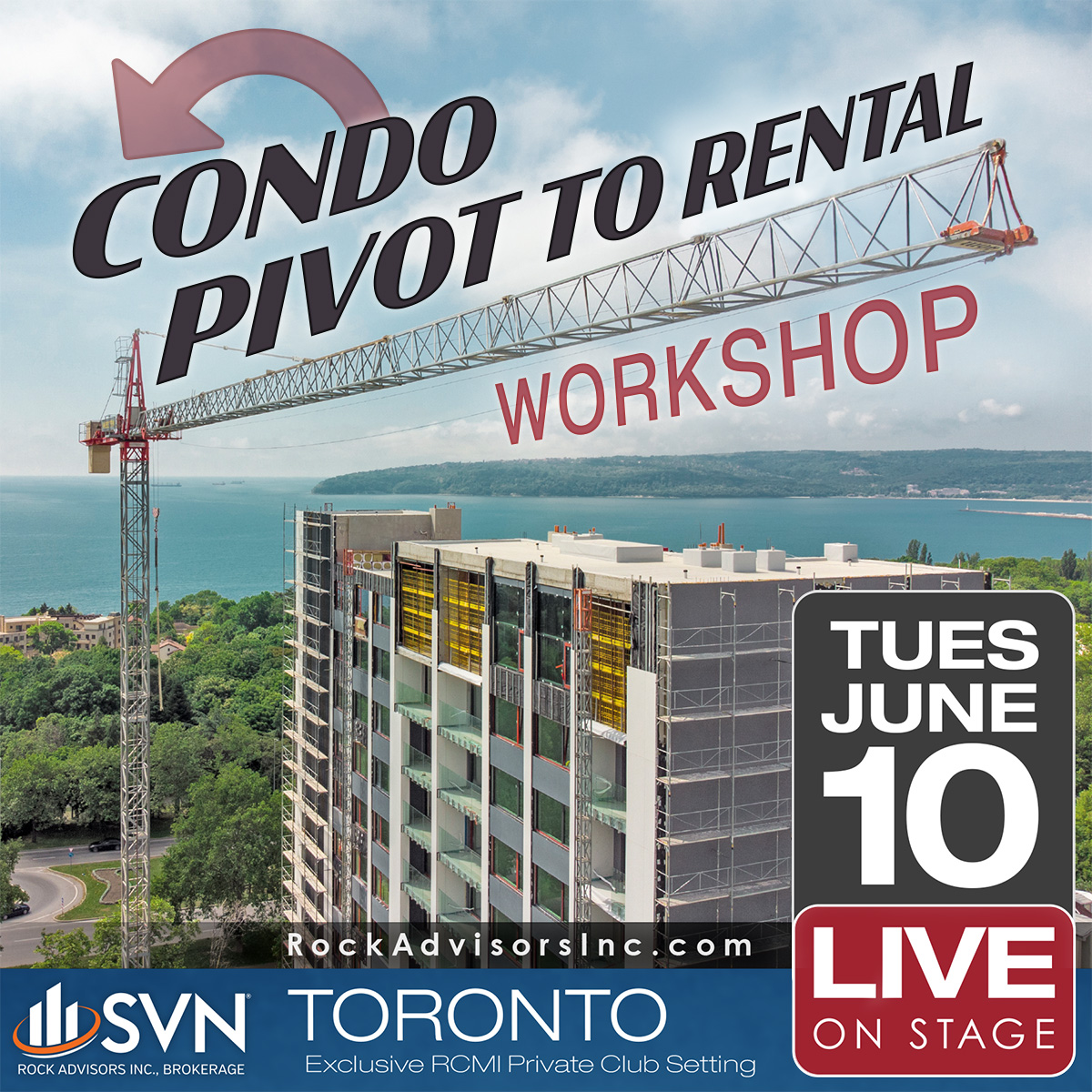In Canada’s multifamily development market, 2025 is looking like a year of recalibration. As condominium sales slow and pre-construction campaigns stretch longer than ever, developers are revisiting their assumptions—and, in many cases, their entire business models.
Where once the condo model promised speed, liquidity, and investor appeal, today it presents challenges. Pre-sale thresholds are harder to hit. Buyers, rattled by interest rates and affordability concerns, are sitting on the sidelines, some even choosing not to close on their commitments to buy. For developers, this slowdown and uncertainty is more than just a temporary hiccup—it’s a signal.
Increasingly, developers are responding by pivoting toward purpose-built rental. Some have already prepared a pipeline for purpose build rental, as a new pathway forward. It’s not just a defensive move; it’s a strategic one. Rental apartments have a history of strong and resilient performance, and with the anticipation of potentially new incentives for this segment, condo developers, more than ever, should and are pivoting.
But transitioning from condo to rental is not as simple as flipping a switch.
Condo developers already have ninety percent of the knowhow, and it’s the remaining ten percent that determines a successful pivot. We’ve felt it necessary to not leave this up to chance and have reached out to several key resources that work with the condo developer community to help bridge this “10% gap.”
The Condo Pivot to Rental Workshop has been created as an in-person private workshop for condo developers, designed to address the real challenges—and opportunities—facing developers making this shift. While much of the industry agrees that the demand for rental is rising, very few have a clear roadmap for how to get there.
The condo developers pivot plan starts with feasibility. For many developers, the first question isn’t whether rentals are viable in theory—it’s whether their existing projects or sites can be restructured to support them. The answer lies in adjusting pro formas, re-evaluating land strategies, and understanding how policy frameworks like rental replacement bylaws or affordable housing overlays affect returns.
Of course, financing is central to the conversation of the pivot, and this is one of the largest differences between the two asset classes. Unlike condos, where revenue is front-loaded through unit sales, rental projects require patient capital and a more layered capital stack. Structuring equity, navigating joint ventures, and managing soft costs all demand a different financial lens. Understanding and awareness of the role of CMHC programs is a huge part of the pro forma for rental development, again very different from condo project financing.
Unique opportunities also exist in dense urban cores and attention to air parcel financing is increasing. Knowing these nuances is why we’ve sought the expertise of Sasa Krcmar of Krcmar Surveyors Ltd. so that condo developers can participate in the discussion at The Condo Pivot to Rental Workshop, and see firsthand how air rights and 3D financing structures are opening up new possibilities for maximizing land value in rental projects.
The pivot from condo to rental also calls for some tweaks to design and construction. Unlike condo buyers, renters experience their units differently—and that impacts how developers should build their product. Durability, user experience, and technology integration become much more important when a building is being operated for decades rather than sold at occupancy. I have personally learned from masters of both asset classes, from the likes of Mansoor Kazerouni, Global Director at Arcadis, who has first-hand dealt with substantial rental and condo projects. Having access to this level of expertise is critical for success. Condo developers can also hear from Mansoor at our June workshop.
Equally important—but often overlooked—are the operational implications of rental development. Unlike condo development, where revenue realization ends at closing, rental projects require long-term leasing strategies, tenant management systems, and a deep understanding of cost controls. From operating expenses and utility submetering to stabilizing occupancy and managing turnover, this part of the business can make or break a rental pro forma. This cannot be an afterthought, pivoting developers need to know that from the start, that they are not only thinking about how to build, but also how to operate efficiently.
A good way for developers pivoting to rental to think about the differences between what they’re used to in condos and what to become aware of in rentals, is to have a future-proof mindset for their rental projects. It’s a new way of thinking long-term, versus the sell-build-done project cycle.
The pivot is your lifeline, and whether you’re looking at converting a stalled condo project, re-zoning land for rental, or building out a new pipeline focused on long-term hold strategies, the shift to rental is one that demands new thinking—and the right information.
The pivot is real. It’s already underway. And for developers who want to stay competitive, it’s time to move from exploration to execution.
The Condo Pivot to Rental Workshop will be held on June 10, 2025, in Toronto. Attendance is limited to a small group of 50 condo developers to allow for in-depth conversations, interaction and high-value learning.

